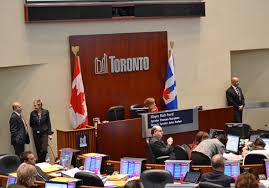 December 2017
December 2017
Toronto is studying how to regulate short-term rentals.
Short-term rentals impact on residential condo communities. Some residential properties are turning into “hotel-type” operations for which they are not licensed, and are a risk to the safety and peace within condo buildings.
 The City of Toronto recently released a report on how it could regulate short-term rentals. The report notes that current laws were not written in a way that regulates the length of time a unit may be rented.
The City of Toronto recently released a report on how it could regulate short-term rentals. The report notes that current laws were not written in a way that regulates the length of time a unit may be rented.
This is a threat being confronted in many cities in Canada and the USA.
New York State has implemented some of the toughest laws regulating home-sharing services.
Prior to the signing of new laws apartment dwellers were prohibited from renting their entire suite for less than 30 days. New laws now apply to permanent residents in buildings with three or more units. Tenants violating the law risk fines of $1,000 for a first offence, $5,000 for a second offence and $7,500 for a third offence. The new laws are intended to prevent residential housing from being used as hotels and to help keep rental prices under control.
In Miami short-term rentals are only allowed in some areas and entirely prohibited for single family homes. Fines can be as high as $20,000. Before advertising a property for short-term rental the owner is required to sign an affidavit stating that the property is in an area approved for short-term rentals, and that they have obtained a business tax receipt and resort tax account. They also need to show that short-term rentals are allowed in their condo association.



